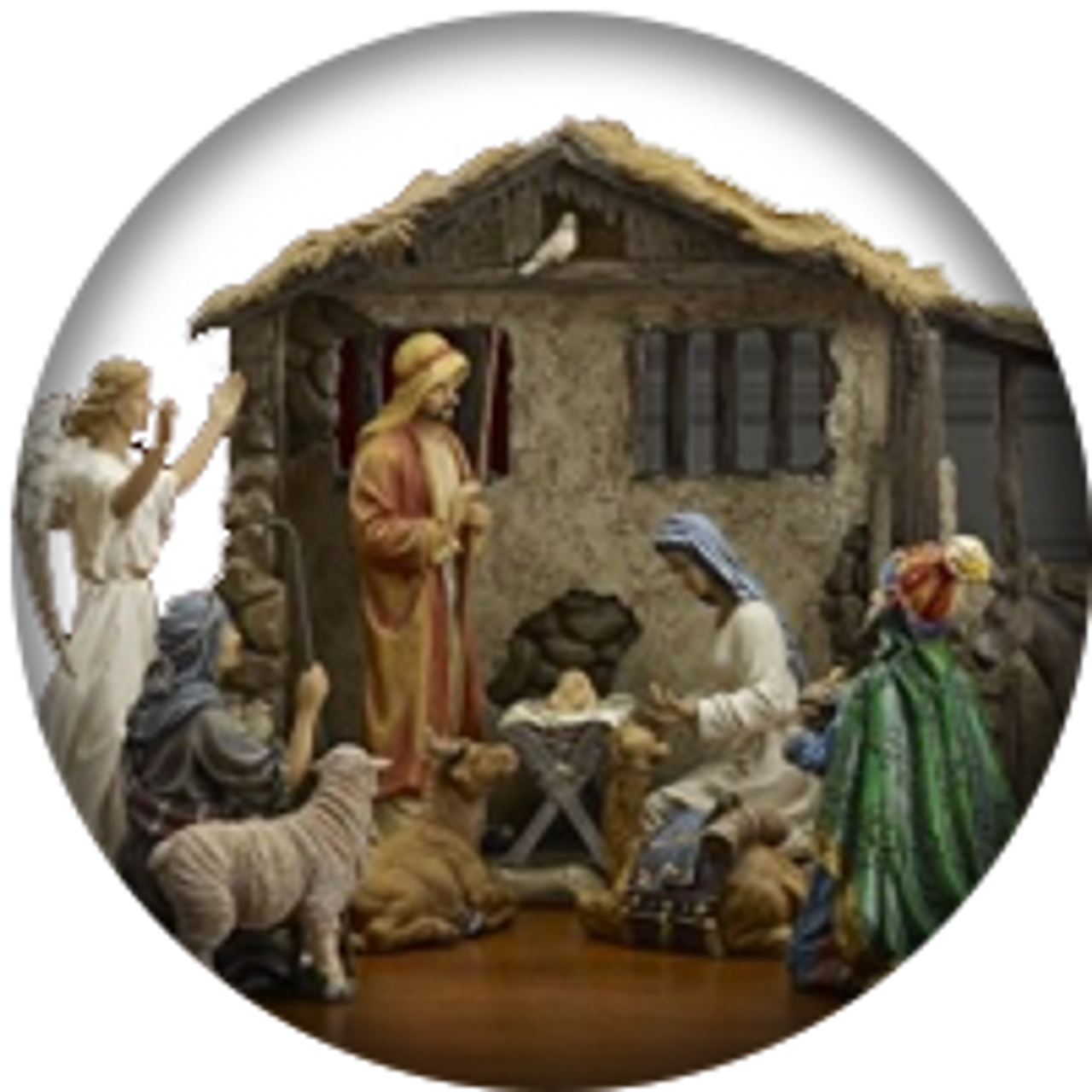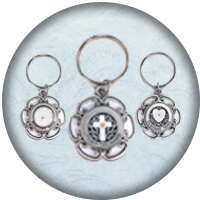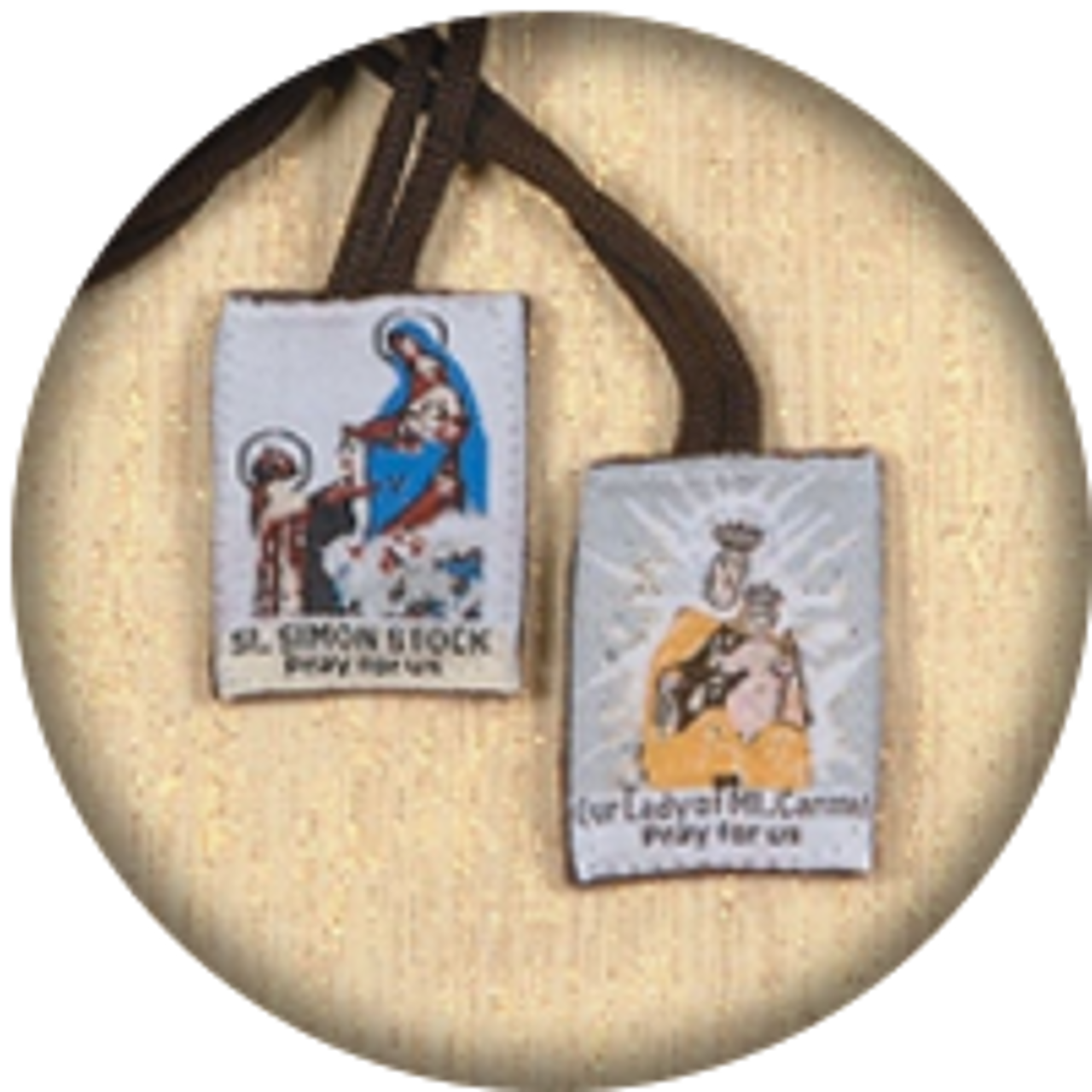Part II: SEEKING FIRST THE KINGDOM in the THY KINGDOM COME series
Kathy Boh on 20th Nov 2019
THY KINGDOM COME series
Part II, SEEKING FIRST THE KINGDOM
“But seek first the kingdom of God and his righteousness, and all these things [clothes, food, drink, etc] will be added to you.” [Mt 6:33]
In “THE KINGDOM OF GOD”, Part I of “THY KINGDOM COME” series, we took a look at what it means to be a “king”. We reviewed various scriptures and descriptions of the kingdom of God—primarily as Jesus, Himself, taught it.
In Part II, SEEKING FIRST THE KINGDOM, here, we look at what Jesus said about how to enter into His kingdom—what helps and what hinders; who is close to it, and three “greatests” connected to it. We hope to enhance our understanding of Who this glorious King is, and what His kingdom can mean in our own lives.
Parts III and IV (THE KINGDOM'S BLIND GUIDES and THE LEAVEN OF THE PHARISEES) take us into a clearer look at what we definitely want to avoid. We review Jesus' very words advising those who would NOT enter the kingdom, and not honor nor obey Jesus or His Father—namely, the Pharisees. Jesus’ instruction teaches us to make sure NOT to let their “leaven” into the bread (and fabric) of our lives and minds and hearts.
CLOSE TO THE KINGDOM
We begin by describing who Jesus said was already “close” to the kingdom and for whom the kingdom was “at hand”. Those who choose to love God and others are “not far” from His kingdom rule over their lives.
“The scribe said to Him… And ‘to love [God and others] is worth more than all burnt offerings and sacrifices’… And when Jesus saw that he answered with understanding, he said to him…You are not far from the kingdom of God.” [Mk 12:33,34]
The kingdom is near…for those who choose to repent of wrongdoing and seek to change their ways.
“Repent, for the kingdom of God is at hand.” [Mt 3:2; 4:12; 10:7]
The kingdom is discovered as a gladly-found gem for those who seek what is precious and are willing to count it more valuable than anything else they have.
“Again, the kingdom of heaven is like a merchant seeking fine pearls and upon finding one pearl of great value, he went and [he] sold all that he had and bought it.” [Mt 13:45-46]
THREE “GREATEST” CONNECTED TO THE “KINGDOM”
The first “greatest” are those who are the greatest in the kingdom of heaven. They are those who humble themselves and become as a little child
“Unless you turn and become like children, you will not enter into the kingdom of heaven. And whoever receives one child such as this receives Me. [Mt 18:1] Whoever then humbles himself as this child, he is the greatest in the kingdom of heaven. [Mt 18:4]
Let the children come to Me, and do not prevent them, for of such is the kingdom of heaven [Mt 19:14]
The second item on the list of “greatest” is the greatest commandment. This statement by Jesus is key to understanding His shepherd’s heart and the heart of the New Covenant.
“…One of them [Pharisees] tested him by asking, “Teacher, which commandment is the greatest?” He [Jesus] said to him, “You shall love the Lord, your God, with all your heart, with all your soul and with all your mind. This is the greatest and the first commandment. The second is like it: You shall love your neighbor as yourself. The whole law and the prophets depend on these two commandments.” [Mt 22:35-?? ]
“There is no greater commandment greater than these.” [Mark 12:31]
Coming up, we will hear Jesus speak of one more “greatest”. It involves His cousin, John the Baptist.
THE KINGDOM IN THE NEW COVENANT
Two cousins ministered on two different sides of the line between the Old Testament covenant and the New Testament covenant brought by Jesus and paid for by His blood. One even rejoiced in the womb when he leaped for joy as he greeted Jesus. (Jesus was also in the womb—of Mary, His mother, who was visiting her cousin, Elizabeth, John the Baptist’s mother.)
The Law and the Prophets…
Once more , we refer to the law of love. Jesus said:
“In everything, treat people the same way you want them to treat you, for this is the Law and the Prophets. [Mt 7:12] The whole law and the prophets depend on these two commandments.” [Mt 22:40]
The following verse continues the thought concerning the Law and the Prophets, and the Old and the New Covenants. The verse contains two very key points that are easy to miss. We will spend some time on both of them. The portion that we will look at now is the first half of the verse referring to the Law and the Prophets. Later in this article, we will view the second half that refers to “taking the kingdom by force.” **
The law and the prophets lasted until John, but from then on the kingdom of God is proclaimed and everyone who enters does so with violence… “the violent take it by force”. [Luke 16:16]
When Jesus was asked by the Pharisee concerning the “greatest” commandment, He (in a sense) boiled down the huge body of Hebrew Old Testament law. He both fulfilled the old covenant and its law(s), and ushered in the new covenant. As the Savior Son of God, Jesus fulfilled the Old Covenant’s demands for a blood “sacrifice” (which had foreshadowed the coming Savior’s sacrificial death). He did this in perfect obedience to the Father and to the law, as the perfect Lamb of God.
Having completely fulfilled the old covenant, Jesus (as Savior, Son of God) spoke regarding the innumerable Old Testament laws. Doing so, He raised two commands very high, yet also brought the commandments down to the depths of their foundation. Jesus' two basic laws of love would serve as the guide for all kingdom choices throughout the new covenant (‘sealed agreement’) with God the Father.
"You shall love the Lord your God with all your heart, with all your soul and with all your mind. This is the greatest and the first commandment. The second is like it: you shall love your neighbor as yourself. The whole law and the prophets depend on these two commandments."
[Mt 22:36-40]
At the same time, in the new covenant,Jesus, as "Love", Himself, is our Cornerstone foundation. [Eph 2:20; 1 Per 2:6]
John and Jesus lived in a time that connected the Old Testament covenant and the New Testament covenant brought and bought by Jesus— paid for by His blood. John was the last and greatest Old Testament prophet (according to Jesus), marking the end of the Old covenant. Jesus’ ministry, life, death and resurrection as the Savior-Christ, the Anointed One marked a beginning of the New covenant—and the beginning of the manifested kingdom of God.
Summarizing, we see, then, that there is some dramatic change in approach to the Old Testament law and the prophets that ended with John the Baptist. The New Testament and new covenant began with Jesus, the Savior, the Son of God.
We know from other verses that He did not do away with the original laws, but He fulfilled them. Hebrews tells us that He became the fulfillment of the pattern/practice of bloody sacrificing of goats and lambs when He—the perfect “Lamb of God”—was sacrificed, “once for all”, for our sins. Hebrews tells us there is now no need for such sacrifices. The focus now is on the Way, Truth and Life that Jesus brings as we stand before God and receive the forgiveness and LIFE that He came to give. He, ALONE, is the “DOOR”. [Jn 10:1-9]
ENTER THROUGH JESUS—THE WAY, THE TRUTH, THE LIFE
“Jesus said to [Thomas], ‘I am the Way, the Truth, and the Life; no one comes to the Father but through Me.” [Luke 14:6]
Jesus’ statement above [Luke 14:6] establishes the main fact regarding entering the kingdom: “No one enters except through [Jesus Christ the Savior..]” [Luke 14:6b]
We live in a pluralistic, new age, independent-thinking, open, inclusive, (etc.) society. Those aspects have influenced us, and they encourage us to seek to re-define even the clear things that Jesus taught and said. For example: How many times and in how many ways do we see the truths/quotes of Jesus (like the one above) questioned, re-defined, negated? Some think or say something like: “Surely… surely, if you really think about it… Surely there must be some other way to get to heaven!”
Why not leave the weighing and the special cases and the what-ifs to our very kind, merciful, totally wise and loving God to figure out? He sees all the known and unknown, intricate factors involved—along with the past and future and all implications— and “looks at the heart” [i.e., the person’s real and deeper choices, preferences, loves, intentions, motives, etc.]. He will wisely sift the heart of anyone seeking truth or goodness or a better way to live. And He will keep working on the very best way for them to discover and receive Him.
We can simply affirm the truth that He has spoken and get His help in following it. It is too easy to make arrogant, small-minded judgments and create options outside of God’s clearly spoken truths. We end up doing this all too often, mostly in ignorance—all the while assuming our minds are much bigger… maybe even more “with it” and caring and wise than God’s. Of course we would never make that statement directly, nor do that intentionally. But we can spend a great deal of time on conjecture, and/or display all kinds of intellectual skills and knowledge. Sometimes it helps to remember the verse we mentioned in the last blog:
For My thoughts are not your thoughts,
Nor are your ways My ways,” declares the Lord.
“For as the heavens are higher than the earth,
So are My ways higher than your ways
And My thoughts than your thoughts. [Isa 55:8-9]
God will judge. He told Peter, when Peter asked about what would happen to John the apostle (“Lord, what about him?”) Jesus answered, “What if I want him to remain until I come? What concern is it of yours? You follow me.” [Jn 21:21-22] That’s a good answer. The best answer. God’s own chosen answer. There are simply some things that we don’t need to know. It is easy to let our intellectual seeking become unnecessarily or overly curious or inflated. Jesus told his disciples that there was some truth that they were not ready to hear. It would be the task of the Holy Spirit to lead them into all truth.
As we take seriously the first commandment (in Old and New Testament) to make sure we love God above and before all else, we may need to remember that the Holy Spirit is as real a Person in the Trinity as the Father and the Son. As we honor and seek God above all, it is the Holy Spirit alone Who can and will lead us into receiving, discerning and understanding Truth/truth—while confirming the truth of God’s word and also revealing and applying scripture to our minds and our lives. How often do we go everywhere else but humbly and honestly to Him first?
There is a multitude of writing, knowledge and learning that we can find around us—both inside and outside the Church. Not all of it is God’s truth. The “father of lies” has been quite skilled at twisting even parts of the “truth” to make it more appealing to confused minds and hearts.
Rebellion and rejection of God’s truth/Truth can come in some very sophisticated, genteel, authoritative, powerful and spiritual packaging—within and outside of the Church.
While the Church has had many wise teachers and saints highly submitted to the love, power and guidance of God the Holy Spirit, there have also been imitators presenting heresy as truth. This resulted in a need for Church councils.The enemy of God (whom Jesus called the “father of lies”) is clever enough to match our own advances in sophistication, technology, independent and individualistic thinking, new age thought, etc. We need to continually seek God’s help to discern and resist the “plausible liars” [1 Tim 4:2].
It is a very interesting study to look up this 1 Tim 4:2 verse in “Bible Gateway” on the internet and read it in all the translations, beyond the usual NABRE. The full impact and richness of the words hit hard in a time and age when we are so surrounded by cultural and spiritual falsehoods being proclaimed as “truth”.
PRESSING IN TO ENTER THE KINGDOM
The more we see verses on the kingdom of God, the more we can feel struck by the need for grace and for God’s help, strength, wisdom and power. As Jesus taught, we can sometimes picture just how much He was speaking and dealing with ordinary people in the typical tasks and travels of their days. He was speaking about practical living—to love one another; how to deal with work and problems and family and government, etc. However far His kingdom ideas are from what we know and practice now, He spoke to all kinds of people with all kinds of needs and experiences. Only rarely do we find Him in the temple teaching.
Jesus presented a way that was different from what religious leaders were presenting at the time. He did not share their attitudes. He was focused on some rather different priorities, ways and means. Therefore, it should not be surprising that Jesus actually used very strong words on how to grab hold of the kingdom of God—how to have God as “king” in our lives. Then and now, it takes determined, strong, persevering moves. Especially in our current, modern lives and lifestyles and schedules— perhaps even more help and grace.
**We return to the other key statement in Luke 16:16: “…the kingdom of God is proclaimed, and the violent take it by force.” The “violent” aspect is described by these words (some of them from translations other than NAB versions): “pressing in; deliberate decision, forceful action; trying hard to get in; using force to get in; striving to get in.” From these words it would seem clear that we don't just easily "fall" into the kingdom of God.
We will repeat the full verse:
"The law and the prophets lasted until John, but from then on the kingdom of God is proclaimed and everyone who enters does so with violence… the violent take it by force”. [Luke 16:16]
The “violence”, in part, refers to something like warfare. Human beings are fighting against their own fallen natures, which seek all the easy answers and deceptive ways… in ignorance, self-will and/or rebellion. We are fighting against… other “kingdoms”—everything else clamoring to be “#1” in our lives— and, definitely, against the “prince of this world” who wants to (and wrestles to) hold on to his own “ignorantly unaware” subjects. That’s why we need to seek (and keep on seeking) and knock and ask and keep on asking God for help. [Mt 7:7-11] The God Who has already “won” is always with us, fighting for us as we ask for help. We see that in references from Christ [Jn 12:31; 16:11]; and in the epistle to the Ephesians [particularly Eph 6].
As we have heard from many sources, repentance is a necessary step in turning to God for new life. Let’s look at a scripture—in several translations—that may help us understand more concretely part of the wrestling match we may find ourselves in. The attention is being brought to this verse because most of us do not have the opportunity to consider some of these factors in our struggles—and just how much God wants to help.
Ephesians 2:1-2
“And you were dead in your trespasses and sins, in which you formerly walked according to the course of this world, according to the prince of the power of the air, of the spirit that is now working in the sons of disobedience.” [NASB]
And from the Amplified versions:
“And you [He made alive], when you were dead (slain) by [your] trespasses and sinsin which at one time you walked [habitually]. You were following the course and fashion of this world [were under the sway of the tendency of this present age], following the prince of the power of the air. [You were obedient to and under the control of] the [demon] spirit that still constantly works in the sons of disobedience [the careless, the rebellious, and the unbelieving, who go against the purposes of God].” [AMPC]
We include a couple other versions for a richer understanding.
From the Phillips version:
“To you, who were spiritually dead all the time that you drifted along on the stream of this world’s ideas of living, and obeyed its unseen ruler (who is still operating in those who do not respond to the truth of God), to you Christ has given life! We all lived like that in the past and followed the impulses and imaginations of our evil nature, being in fact under the wrath of God by nature, like everyone else.” [J.B. PHILLIPS]
And, finally, from the Message Bible:
“It wasn’t so long ago that you were mired in that old stagnant life of sin. You let the world, which doesn’t know the first thing about living, tell you how to live. You filled your lungs with polluted unbelief, and then exhaled disobedience. We all did it, all of us doing what we felt like doing, when we felt like doing it, all of us in the same boat. It’s a wonder God didn’t lose his temper and do away with the whole lot of us. Instead, immense in mercy and with an incredible love, he embraced us. He took our sin-dead lives and made us alive in Christ. He did all this on his own, with no help from us! Then he picked us up and set us down in highest heaven in company with Jesus, our Messiah.” [MSG Eph 2:1-6]
REPENTANCE
Jesus chose to honor John’s baptism of repentance. Repentance was/ is so basic to baptism that John confronted a group that came to Him because they would not repent. Repentance is also a first step in entering the kingdom (as an early verse in this article tells us “Repent, for the kingdom of God is at hand… the kingdom of heaven has come near.”) The desire to truly change and go a new direction in life, and get rid of wrongdoing, or seek the truth even when it costs us something… this kind of repentant spirit draws us close to the kingdom of God. Real repentance (going beyond self-serving “regret”) is motivated by the love of God or love of others. We look past ourselves.
John the Baptist clearly saw that this attitude of heart was not showing as good fruit in the Pharisees and Sadducees. So he commented to them as he saw them draw near. “But when he saw many of the Pharisees and Sadducees coming for baptism, he said to them, “You brood of vipers, who warned you to flee from the wrath to come? Therefore bear fruit in keeping with repentance.” [Mt 3:7-8]
ENTERING THE KINGDOM …FROM ABOVE, NOT BELOW
Jesus said to Nicodemus: “…No one can see the kingdom of God without being born from above… No one can enter the kingdom of God without being born of water and Spirit. What is born of flesh is flesh and what is born of spirit is spirit… For God so loved the world that he gave his only Son, so that everyone who believes in him might not perish but have eternal life. For God did not send his Son into the world to condemn the world, but that the world might be saved through him.” [Jn 3:3-5; 16-17]
Just as the Jewish greeting and word “shalom” has a larger, richer meaning than the English word “peace”, the word “salvation” has many more implications than the freedom and blessing of forgiveness of sins—as most people tend to think.
Today, I was looking up (on Miriam-Webster’s Thesaurus on Google) a synonym for a word I kept using. Right under the entry space for the word requested, there was an ad headline. “The One-derful Won” was written. (Underneath was a picture of a Finnish comedian described as “tr[ying ] to tackle the complexities of English’s most basic numbers”).
The message struck me, though. For Jesus, Himself is both the “Wonderful One” Who indeed fulfills the simple statement: “The One-derful Won”. He is the ONLY ONE Who saves… One of the Three-in-One… Our only hope… and on and on. And He WON! He won forever for us the impossible Victory over eternal death, hell and the grave. He won much more for us than most of us even vaguely imagine, much less ask for. God wants to be so much more in our lives.
And God has not stopped providing us with continued help. Where we look for help and what we choose result in varied outcomes. Luke 3:16 says, “John answered them all, saying, ‘I am baptizing you with water, but one mightier than I is coming. I am not worthy to loosen the thongs of his sandals. He will baptize you with the Holy Spirit and with fire. His winnowing fan is in his hand to clear the threshing floor and to gather the wheat into his barn, but the chaff he will burn…” [Luke 3:16-17] This parable shows that there are consequences that come with our choices.
Again, the direct statement is spoken assuredly. John the Baptist made it clear that he baptized with (only) water. Repentance had been called for throughout the Old Testament. It was a primary part of the mission of the prophets. (It's part of what made them unpopular.) Jesus Christ—the Anointed One, the Savior, the Old-Law-Fulfillment Who became the New Covenant Door and Way of salvation—baptizes with the Holy Spirit and fire. It’s fully a move from, in and through God above in the very Person of the Holy Spirit, and it is a move with power and passion, represented by “fire”— as we see in the account of Pentecost in Acts chapter 2.
We will continue our look at the kingdom of God in the last two parts of our series described at the beginning of our article here. We will see more wisdom in scriptures that help us see what it means to be part of it. We will see what helps and what doesn’t, according to Jesus’ own words.










